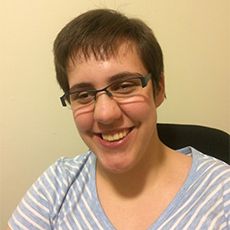Against Cure and Toward Access in Musical Engagement
DOI:
https://doi.org/10.15845/voices.v22i3.3387Abstract
In this paper, I reflect on my own experiences undergoing occupational therapy with musical elements in the United States in childhood for impairments related to physical coordination and visual processing. Although therapy involving music was by far the most enjoyable and least painful of the therapies and treatments I underwent as a multiply-disabled child, it was still anchored in the language of removing my impairments and/or aligning me better with nondisabled norms. I build on the work of Robert Gross (incorporating the social model of disability into music therapy) and Emily Elaine Williams (the participatory model of accommodation enabling music for pleasure, not for therapy). I also draw on works in the autistic and cross-disability online spheres on the overmedicalization of disabled people’s leisure activities to argue that framing music as a possible agent of cure or normalization harmfully obscures the ways in which music can provide access and mitigate impairments when directed and controlled by the listener, rather than by the therapist. My paper will also contrast music as therapy (imposed by others) vs. music as access tool (self-imposed) via a playlist and corresponding analysis. Music is central to my overall engagement with the world, affecting everything from processing and describing emotions, to communicating, to aiding in sensory processing. By introducing music as an access tool, or even as a form of assistive technology, I aim to challenge the dominant framing of normalization in therapy involving music and shift the focus to affirming disabled ways of engaging with music.

Downloads
Additional Files
Published
How to Cite
Issue
Section
License
Copyright (c) 2022 Stephanie Ban

This work is licensed under a Creative Commons Attribution 4.0 International License.
Articles published prior to 2019 are subject to the following license, see: https://voices.no/index.php/voices/copyright

